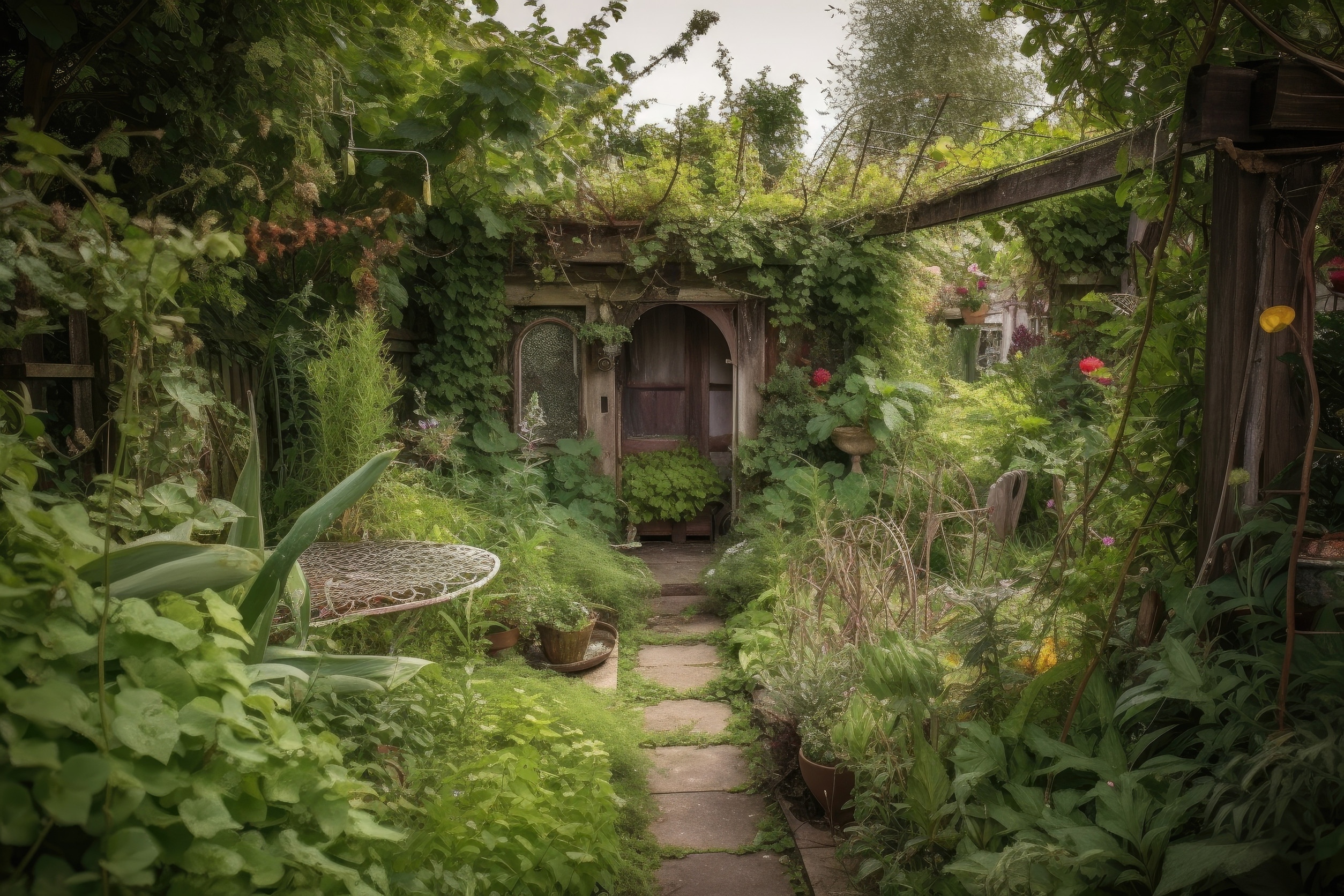
Image Source: 123rf.com
Your garden isn’t just a personal retreat; it plays a surprising role in your home’s overall value. While a well-maintained yard can boost curb appeal and leave a lasting impression on buyers, certain landscaping mistakes can do just the opposite. If you’re thinking about selling your home, it’s worth knowing that your garden could either raise your appraisal or quietly drag it down. In fact, according to REALTOR Magazine, a study revealed that homes with an appealing exterior sell, on average, for 7% more than comparable homes with a rundown appearance. Here are ten common garden features and habits that might be hurting your home’s value without you even realizing it.
1. Overgrown Landscaping
An unkempt garden gives the impression of poor maintenance overall. Appraisers may assume other areas of the property are also neglected. Make sure that your lawn is cut, bushes are trimmed, and there are no weeds in your garden. Fresh mulch and flowers can also leave a good impression.
2. Invasive Plants
Fast-spreading species like bamboo or English ivy can damage foundations, fences, and nearby trees. They’re red flags for long-term property risk. You’ll want to hand-pull or cut any invasive plants before your home’s appraisal. You may even need herbicide or a tarp for larger areas. Make sure to get all roots and seeds to remedy the problem fully.
3. Poor Drainage
Improper grading, puddles, or soggy soil near your foundation can signal drainage problems. Sometimes, that lowers both curb appeal and structural value. To improve drainage in your garden, you can build raised beds, use organic material to improve soil drainage, and maintain your gutter and downspouts properly. You may want to consider installing French drains if drainage continues to be a problem.
4. Trees Too Close to the House
Trees on your property can either increase your home’s appraisal or decrease it. It all depends on placement. Large trees planted too near can cause root damage to the foundation, driveway, or plumbing. Appraisers take note of these expensive risks. Regular tree maintenance, like trimming branches, is also very important for your home’s appraisal.
5. Hidden or Unsafe Walkways
Overgrown paths or uneven stepping stones create safety hazards. Liability concerns like these can subtract value in an appraisal. It’s best to address all upkeep concerns before your home gets appraised. You also should consider the condition of your driveway, in addition to the walkways. Any cracks should be addressed and sealed.
6. Pest-Friendly Conditions
Thick mulch against the home, standing water, or rotting wood attracts termites, mosquitoes, and rodents. All of these factors won’t be ignored by appraisers and inspectors. If you believe you have a pest issue, it’s best to hire a professional to do an assessment. Then, you can fix any issues or damage before it decreases your home’s value.
7. Non-Permitted Structures
Sheds, pergolas, or greenhouses built without permits may violate local codes. They might even be considered liabilities rather than assets. Not to mention, buyers will shy away from your property if there are too many concerns. Make sure that all of your structures are properly permitted and to code before your home’s appraisal.
8. Unusable Outdoor Space
If your yard is cluttered, overly shaded, or inaccessible, it reduces usable living space. This is something buyers and appraisers alike value highly. All of your living spaces should be clear and tidy. This includes outdoor space. If it is, this will increase your home’s value.
9. High-Maintenance Features
Elaborate gardens requiring extensive upkeep can turn off potential buyers. Appraisers often consider marketability when assigning value. Keep your garden simple and well-maintained for the best results.
Buyers may see high-maintenance features as added time and expense rather than a bonus. Even the most beautiful garden can become a liability if it looks like too much work.
10. Lack of Cohesion with the Home
A garden that clashes with the style or scale of the house can feel out of place. Design inconsistency may detract from overall appeal and perceived value. For example, a modern home surrounded by a cottage-style garden may confuse rather than charm. The exterior should feel like an extension of the home’s architecture, not a competing element.
Improving Your Home’s Appraisal with a Proper Garden
A beautiful, low-maintenance garden can quietly boost your home’s value, impressing both appraisers and potential buyers. But if your outdoor space looks neglected or overgrown, it could just as easily work against you. Thoughtful landscaping isn’t just about curb appeal—it’s a smart investment in your property’s worth.
Read More
10 Best Budget Small Garden Ideas You Need To See
8 Common Garden Tools That Could Be Illegal in Your City

Teri Monroe started her career in communications working for local government and nonprofits. Today, she is a freelance finance and lifestyle writer and small business owner. In her spare time, she loves golfing with her husband, taking her dog Milo on long walks, and playing pickleball with friends.
Leave a Reply